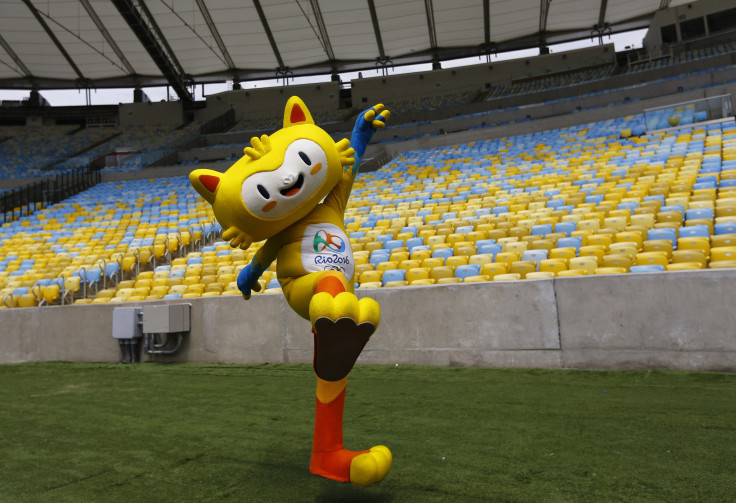Ahead Of 2016 Rio Olympics, Chinese Firms Hope To Cash In

Next year’s Summer Olympics in Rio de Janeiro will be another test for Brazil, which has been struggling under the weight of a recession and continuing political turmoil. But the games spell opportunity for a number of Chinese companies that are looking to establish a stronger foothold in the Brazilian market.
Chinese firms 361 Degrees and Huajiang Culture Development Co., or Honav, will supply official merchandise for the sporting events in next year’s Olympics, according to Chinese state-run media outlet Xinhua. 361 Degrees, a sportswear company, will provide more than 106,500 uniforms for volunteers and staff, while Honav will manufacture and sell official Olympics souvenirs, including pins. Honav is also licensed to manufacture the official mascots for the games as a former licensee for the 2008 and 2012 Olympics in Beijing and London, respectively.
Other Chinese companies are looking for their own ways to get involved. Manufacturing companies Sany, XCMG and Zoomlion have provided equipment and machinery for stadium construction in Rio, according to Xinhua. Another company, Nuctech, is also reportedly aiming to bid to provide security equipment.

Fernando Cotrim, the procurement director for the 2016 games, said in November that the event could be an opportunity for Chinese firms looking to expand into the continent for the first time. 361 Degrees’ entry into the Brazilian market could allow the brand to find new markets across Latin America, he told China Daily. And other companies could be on their way.
"As far as I know, in other bidding process like furniture, there are also Chinese companies eager to be part of the supply chain," Cotrim said in a December interview, adding that he expected about 80 percent of the supply chain would be negotiated by the end of this year.
"We'll establish product and service catalogues and we'll do the last-minute adjustments to our logistics before it becomes operational. Between 2015 and 2016, we'll focus our efforts on managing supplier contracts as well as the logistics chain to ensure that everything goes according to plan," he said.
Brazil and China have had a close-knit economic relationship for many years, with Beijing pumping loans and investments into the South American economy to boost its infrastructure. A visit by Chinese Premier Li Keqiang in May resulted in around $53 billion worth of new trade agreements and investments.
China is Brazil’s largest trading partner and traditionally has relied on Brazilian commodities like iron ore and soybeans. But slowing demand in China in recent years has hit Brazil’s economy badly, a problem that’s been compounded by a corruption scandal that hit Brazil’s state-run energy company Petrobras last year. Brazil fell into a technical recession in the second quarter of this year, and its economy is projected to contract by around 2 percent this year. China’s economic growth has also slowed, with projections that it may expand by only around 7 percent this year, which would mark its slowest growth in 25 years.
© Copyright IBTimes 2025. All rights reserved.






















